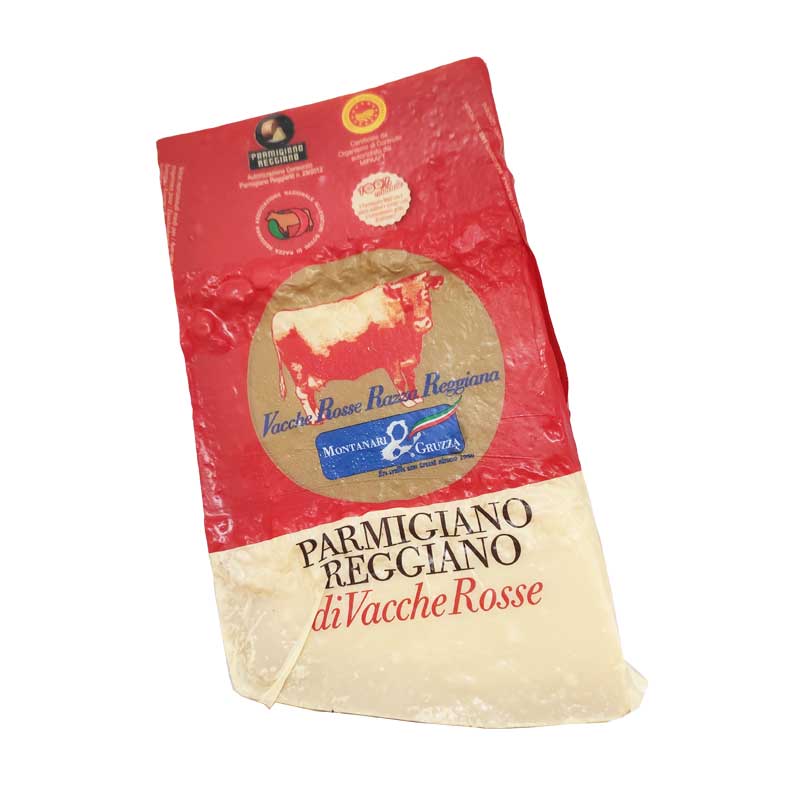
Parmigiano Reggiano Red Cows is the father of all Parmesans, because historically, the production of this cheese used milk derived only from the Reggiana breed with a red coat. The difference in Parmesan produced from red cows compared to other varieties lies in the higher protein content, especially vitamin B and K casein, which are essential for the cheese-making process and prolonged aging. Additionally, the milk produced is one-third less than that of the Friesian. According to regulations, Red Cows cannot be sold under 24 months. Pairings: Parmigiano Red Cows is recommended to be enjoyed pure, excellent as an appetizer and paired with jams and dried fruits. Grated, it enhances the flavors of risottos and pastas. Storage: Store in a cool, dry place. Processing: The milk used for the production of Parmigiano Red Cows is milked the evening before and processed the following morning; in copper basins, the cream rises and whey starter is added. The milk from the previous day is mixed with that of the morning milking and calf rennet is added. The curd is then broken into the size of a grain of rice and cooked at a temperature of 54°C. The paste sinks and remains at the bottom of the vat for some time, followed by the collection and molding of the Parmesan where it is marked with the classic dotted pattern. The cheese is then salted for about 20 days and subsequently aged for no less than 24 months on wooden boards at a controlled temperature. For the production of Parmesan, especially for Red Cows, the cow's diet must be exclusively hay and grass and some certified naturally non-GMO feeds. Only in this way is the unmistakable and unique Parmigiano Reggiano cheese born. Aging: 22
Price VAT included
Parmigiano Reggiano Red Cows is the father of all Parmesans, because historically, the production of this cheese used milk derived only from the Reggiana breed with a red coat. The difference in Parmesan produced from red cows compared to other varieties lies in the higher protein content, especially vitamin B and K casein, which are essential for the cheese-making process and prolonged aging. Additionally, the milk produced is one-third less than that of the Friesian. According to regulations, Red Cows cannot be sold under 24 months. Pairings: Parmigiano Red Cows is recommended to be enjoyed pure, excellent as an appetizer and paired with jams and dried fruits. Grated, it enhances the flavors of risottos and pastas. Storage: Store in a cool, dry place. Processing: The milk used for the production of Parmigiano Red Cows is milked the evening before and processed the following morning; in copper basins, the cream rises and whey starter is added. The milk from the previous day is mixed with that of the morning milking and calf rennet is added. The curd is then broken into the size of a grain of rice and cooked at a temperature of 54°C. The paste sinks and remains at the bottom of the vat for some time, followed by the collection and molding of the Parmesan where it is marked with the classic dotted pattern. The cheese is then salted for about 20 days and subsequently aged for no less than 24 months on wooden boards at a controlled temperature. For the production of Parmesan, especially for Red Cows, the cow's diet must be exclusively hay and grass and some certified naturally non-GMO feeds. Only in this way is the unmistakable and unique Parmigiano Reggiano cheese born. Aging: 22